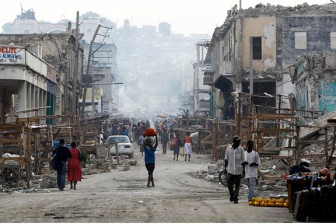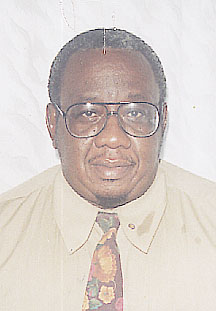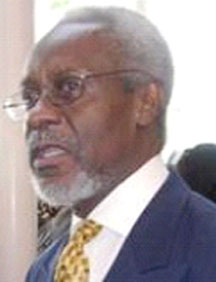Guyanese and other Caribbean private sector firms are eligible to access a special US$1 billion fund mobilized through contributions by international funding agencies under the auspices of the Caribbean Community (Caricom) to ensure regional participation in the rebuilding exercise currently underway in Haiti following last year’s devastating earthquake.
Disclosure of the fund’s availability was made at a meeting of regional private sector bodies in Haiti last week where Guyana was represented by President of the Guyana Manufacturing and Services Association (GMSA) Clinton Williams. GMSA officials are to meet later today with local business entities to discuss their participation in rebuilding projects in Haiti including access to the fund. Today’s meeting is also expected to discuss local private sector participation in a March 21-22 Caribbean Association of Industry and Commerce (CAIC) meeting of regional construction and other firms in Port-of-Spain at which discussions will be held with Haitian firms to examine the creation of partnerships for undertaking projects and to work out the bidding process for projects. The Port-of-Spain meeting will also discuss networking among regional construction firms, emerging trends in information technology, building information models, health safety and environmental codes and other post-reconstruction standards in Haiti.
The successful mobilisation of the regional fund to help finance Carib-bean private sector participation in the Haiti reconstruction programme is being credited largely to the efforts of former Prime Minister of Jamaica, Percival J Patterson, who is
currently serving as Special Represen-tative of Caricom on Haiti and who was instrumental in managing the mechanism through which the funds were garnered from international lending agencies, donor institutions and development banks in several developed countries including Japan. The fund is being administered by the Caribbean Development Bank (CDB)and is accessible only to Caribbean firms. Stabroek Business has been informed that US$100 million is immediately available for disbursement to regional business entities to enable their involvement in various rebuilding projects in the earthquake-ravaged Caricom country.

Since mid-last year, Patterson has been in constant communication with regional Heads of Government to update them on progress in the mobilization of the fund. Jamaica’s Prime Minister Bruce Golding has said that the fund “will provide the financing required to make a meaningful difference… to the pace of reconstructing the island’s infrastructure.”
At last week’s meeting in Port-Au-Prince representatives of regional private sector organizations were told that the US$1 billion fund had been created out of a recognition that Caribbean firms were unlikely to be able to compete successfully with the more technologically advanced and better equipped international companies for contract awards in Haiti.
Stabroek Business has learnt that pledges of funding were reportedly slow to materialize following the initial launch of the appeal but that the pace quickened by mid-last year after it had been decided that diligent efforts should be made to ensure regional private sector participation in the rebuilding process in Haiti. The CAIC has been credited with spearheading a region-wide initiative which galvanized support among Caricom member countries for the creation of the fund.


Last July, the CAIC, in collaboration with the Caricom Secretariat, organized the first Caricom Private Sector Initiative forum in Haiti with the aim of undertaking a needs analysis there. Representation at the Haiti forum included 57 Caricom nationals representing a range of artisan and knowledge-based skills, education and financial services as well as representatives of private sector bodies from Suri-name, Guyana, Jamaica, Barbados and Belize and other territories in the region.
Williams has told Stabroek Business that Guyanese artisans, builders, engineers, architects and building contractors as well as suppliers of building material can benefit from being involved in projects under the Haitian rebuilding programme. Williams said other categories of local private sector entities including building material suppliers and enterprises in the manufacturing, distribution, agriculture, telecommunications, transportation, financial services and other sectors could also become involved in projects in Haiti. “Private sector business owners in Guyana are not being asked to donate their services but to offer their considerable expertise without having to compete with companies from metropolitan countries for the same dollar,” Williams told Stabroek Business.




